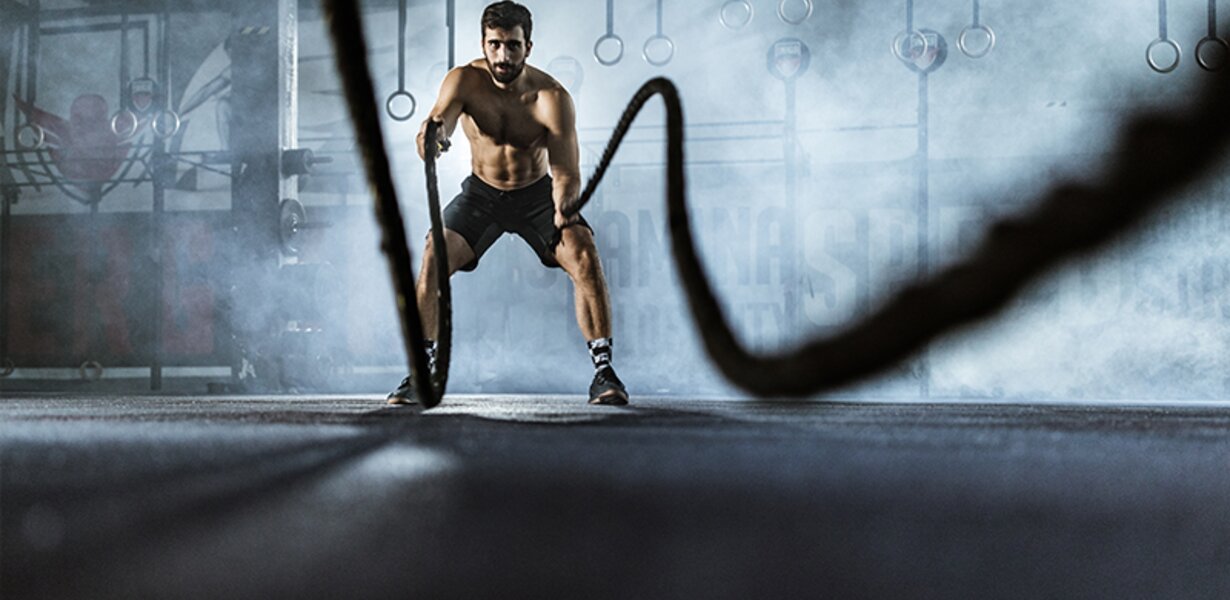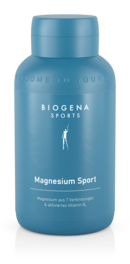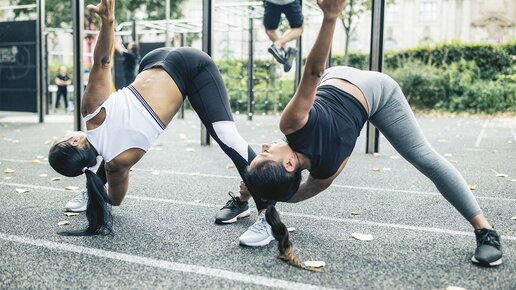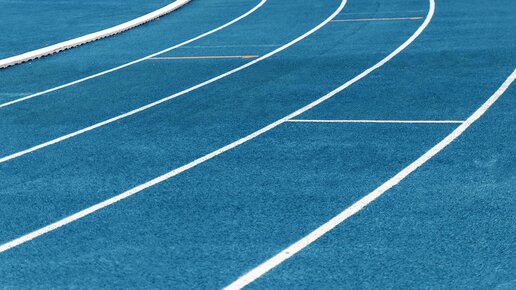In sports, magnesium may not be in the spotlight like protein or carbohydrates, but for athletes, it is a real game-changer because this mineral ensures that you achieve your best performance in sports. It is involved in over 300 biochemical processes that can take your training to the next level. But why exactly is magnesium important for athletes? And what should they consider when taking magnesium? We shed light on this topic.
Effects of magnesium in sport
Magnesium is a real all-rounder in sports: it provides more power, improves muscle function and supports faster regeneration. Muscle cramps are a thing of the past, and your sleep also benefits – for optimal recovery and maximum performance. Find out exactly how magnesium does this in the following paragraphs.
More power, less exhaustion: magnesium as an energy booster in sports
Whether you are lifting heavy weights in the gym or training for a marathon, your body needs energy. This is where magnesium comes in. It helps your body convert food into energy by activating adenosine triphosphate (ATP), the main source of energy in your cells. Without sufficient magnesium, your body cannot perform at its best. However, with an optimal supply, you can perform for longer and won't tire as quickly.
Muscles in top form: How magnesium improves your muscle function
Cramps and muscle spasms are the enemy of every athlete. Magnesium helps keep these problems at bay by supporting the contraction and relaxation of your muscles. It acts as a muscle relaxant and ensures that your muscles can recover properly after exertion. If you ensure you get enough magnesium on a regular basis, unpleasant muscle cramps will be a thing of the past and you can fully concentrate on your training.
Faster regeneration in sports: the key to shorter recovery times
Recovery is crucial after a hard workout. Magnesium aids muscle recovery and reduces muscle soreness. It helps to regulate inflammation and get your body back to full fitness faster. This means shorter recovery periods and a quicker return to training – ideal for anyone who wants to get the most out of their fitness program.
Say goodbye to muscle cramps: magnesium for optimal muscle care
Magnesium is not only important for the supply of energy, but also for preventing muscle cramps and fatigue. During intense physical exertion, it helps to transport blood sugar into the muscles and promote the breakdown of lactate – the main cause of muscle tension. With sufficient magnesium, you can train longer without risking aching muscles.
Sleep better, train harder: magnesium's influence on sleep and recovery
Restful sleep is invaluable for athletic performance. Magnesium calms the nervous system and improves sleep quality by regulating the sleep-wake cycle. For athletes, this means faster sleep onset, deeper sleep, and a more refreshed body ready to take on the next challenge. A well-rested body is more resistant to injury and recovers faster.
Magnesium intake during sport - does it make sense?
Magnesium intake is particularly important for athletes, as intensive training increases the need for it.
Magnesium before or after exercise: When is the best time to take magnesium?
Those who train hard also want to do everything right when taking magnesium. The good news is that if your magnesium stores are already well stocked, it more or less doesn't matter when you take magnesium. If your magnesium levels are suboptimal, some sports experts recommend taking magnesium before exercising so that the mineral is available during physical exertion. However, much more important than the timing in this case is the regular and consistent intake of the mineral, because it normally takes up to 6 months to achieve a good magnesium level, and only regular intake can build up a good intracellular level that can be accessed at the right moment during exercise.
The daily magnesium requirement for sport: What is the right mg amount per day?
The general recommendation is 400–420 mg for men and 310–320 mg for women per day. But if you regularly push your limits, you probably need more to ensure that your muscles and energy system function optimally. However, too much magnesium can cause digestive problems, so it is important to get the balance right.
| mg magnsium per day | ||
| Men | Women | |
| Adults | 400-420 or more | 310-320 or more |
Why do you need more if you sweat a lot?
Magnesium losses during sports should not be underestimated. Contrary to the widespread belief, these losses do not occur through sweat (only about 2 mg per hour), but rather indirectly through reduced kidney function caused by physical activity. Since the kidneys work less efficiently during exercise, magnesium loss increases on average by 20-30%. This leads to an increased amount of magnesium being excreted in the urine, suggesting that regular magnesium supplementation is needed to compensate for these losses.
Nutritional supplements: what is the best form for athletes?
Different forms of administration present different circumstances. While some athletes prefer to consume magnesium in liquid form (e.g. as a stick or effervescent tablet) – and sometimes combined with other micronutrients (e.g. potassium, L-glutamine) – others prefer magnesium in capsule or tablet form. However, it should be noted that tablets and effervescent tablets cannot be produced without unnecessary technical additives, binders and other additives. This is not the case with capsules and powders. That is why we at BIOGENA rely on these forms of administration.
Which magnesium for athletes?
For athletes, it is advisable to use a combination preparation with different magnesium compounds.
Micronutrients that can be useful in combination with magnesium in sports:
Useful supplements to magnesium are its physiological partner potassium and, especially for strenuous training, a triple combination – i.e. with magnesium, potassium and the amino acid L-glutamine – can also be useful. Vitamin B6 is involved in the fundamental processes of physical performance enhancement. The vitamin supports protein and glycogen metabolism as well as the formation of red blood cells. In addition, vitamin B6 can promote the accumulation of magnesium in the cells. Therefore, magnesium and vitamin B6 are the perfect team for sporting success.
Conclusion: magnesium is an essential mineral for anyone who wants to improve their athletic performance, recover faster and avoid muscle problems. By optimizing your magnesium intake, you can lay the foundation for successful training and lasting athletic progress.
Frequently asked questions about magnesium and sports
Muscle soreness is pain that occurs after overexertion during sports or other physical activities. It is caused by tiny tears in the muscle fibers, which usually result from unaccustomed movement patterns. An optimal magnesium level helps to reduce damage to the muscles and can thus reduce muscle soreness after exercise.
Yes, magnesium can help relieve heavy legs after exercise by supporting muscle function and promoting recovery.
People who train frequently and/or intensively or are even working towards a competition should consider taking a magnesium supplement.
How much magnesium athletes should take each day depends on their individual situation. A doctor can work with you to determine your current condition and recommend a magnesium supplement that is ideally dosed for your needs.
It can be beneficial for athletes to take a combination supplement containing magnesium and its physiological partner potassium. A 3-way combination - i.e. with magnesium, potassium and the amino acid L-glutamine - can also be particularly useful for strenuous training.
If your magnesium levels are high, it doesn't really matter when you take magnesium. If they are low, some sports experts recommend (if tolerated!) taking magnesium before exercise. However, in this case, it is much more important to take it regularly and consistently, since it usually takes a few months to replenish the magnesium stores.
Magnesium supports energy production during exercise, improves muscle function and promotes recovery. It helps to prevent muscle cramps and twitching and ensures better recovery and sleep quality.
Further Reading:
Tarsitano M.G., et al. 2024. Effects of magnesium supplementation on muscle soreness in different type of physical activities: a systematic review. J Transl Med . 2024 Jul 5;22(1):629. doi: 10.1186/s12967-024-05434-x. https://pubmed.ncbi.nlm.nih.gov/38970118/
Fiorentini D., et al. 2021. Magnesium: Biochemistry, Nutrition, Detection, and Social Impact of Diseases Linked to Its Deficiency. Nutrients. 2021;13:1136. doi: 10.3390/nu13041136. https://pubmed.ncbi.nlm.nih.gov/33808247/
Pethő A.G., et al. 2024. Magnesium Is a Vital Ion in the Body-It Is Time to Consider Its Supplementation on a Routine Basis. Clin Pract. 2024 Mar 22;14(2):521-535. doi: 10.3390/clinpract14020040. https://pubmed.ncbi.nlm.nih.gov/38525719/
Castiglioni S., et al. 2024. The central role of magnesium in skeletal muscle: from myogenesis to performance. Magnes Res. 2024 Jul 1;37(1):1-11. doi: 10.1684/mrh.2024.0526. https://pubmed.ncbi.nlm.nih.gov/39077819/
Veronese N., et al. 2014. Effect of oral magnesium supplementation on physical performance in healthy elderly women involved in a weekly exercise program: a randomized controlled trial. Am J Clin Nutr. 2014 Sep;100(3):974-81. doi: 10.3945/ajcn.113.080168. Epub 2014 Jul 9. https://pubmed.ncbi.nlm.nih.gov/25008857/
Maier J.A., et al. 2021. Magnesium and inflammation: Advances and perspectives. Semin Cell Dev Biol. 2021 Jul:115:37-44. doi: 10.1016/j.semcdb.2020.11.002. Epub 2020 Nov 18. https://pubmed.ncbi.nlm.nih.gov/33221129/
Arab A., et al. 2023. The Role of Magnesium in Sleep Health: a Systematic Review of Available Literature. Biol Trace Elem Res. 2023 Jan;201(1):121-128. doi: 10.1007/s12011-022-03162-1. Epub 2022 Feb 19. https://pubmed.ncbi.nlm.nih.gov/35184264/
Rondanelli M., et al 2021. An update on magnesium and bone health. Biometals. 2021 Aug;34(4):715-736. doi: 10.1007/s10534-021-00305-0. Epub 2021 May 6. https://pubmed.ncbi.nlm.nih.gov/33959846/
Schmidbauer C., Hofstätter G., et al. 2020. Biogena Mikronährstoff-Coach. 4. aktualisierte und erweiterte Auflage, 1158 Seiten.
Exciting newly published studies:
Liguori S. et al. 2024. Role of Magnesium in Skeletal Muscle Health and Neuromuscular Diseases: A Scoping Review. Int J Mol Sci. 2024 Oct 18;25(20):11220. doi: 10.3390/ijms252011220. https://pubmed.ncbi.nlm.nih.gov/39457008/
Fatima G. et al. 2024. Magnesium Matters: A Comprehensive Review of Its Vital Role in Health and Diseases. Cureus. 2024 Oct 13;16(10):e71392. doi: 10.7759/cureus.71392. eCollection 2024 Oct. https://pubmed.ncbi.nlm.nih.gov/39539878/








